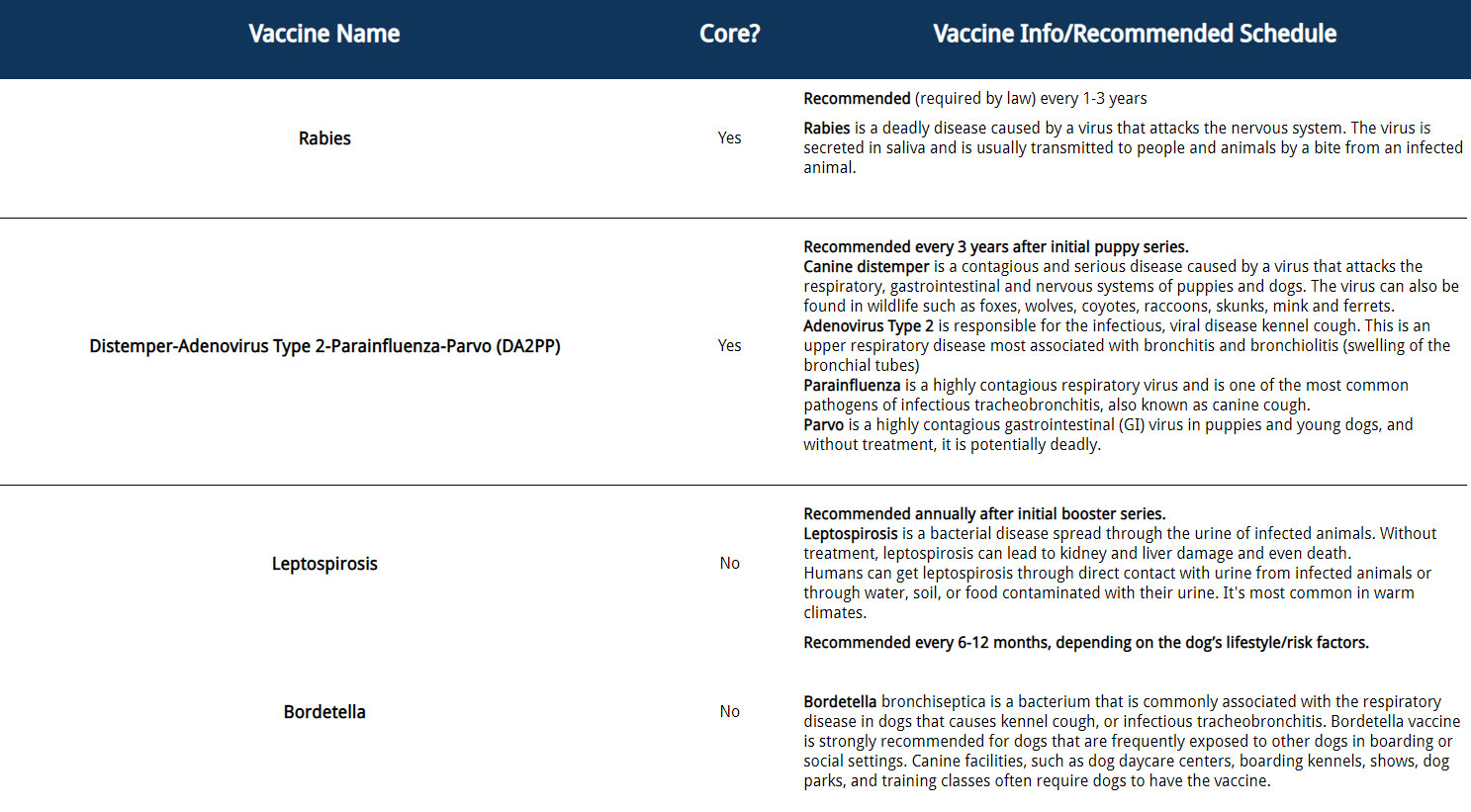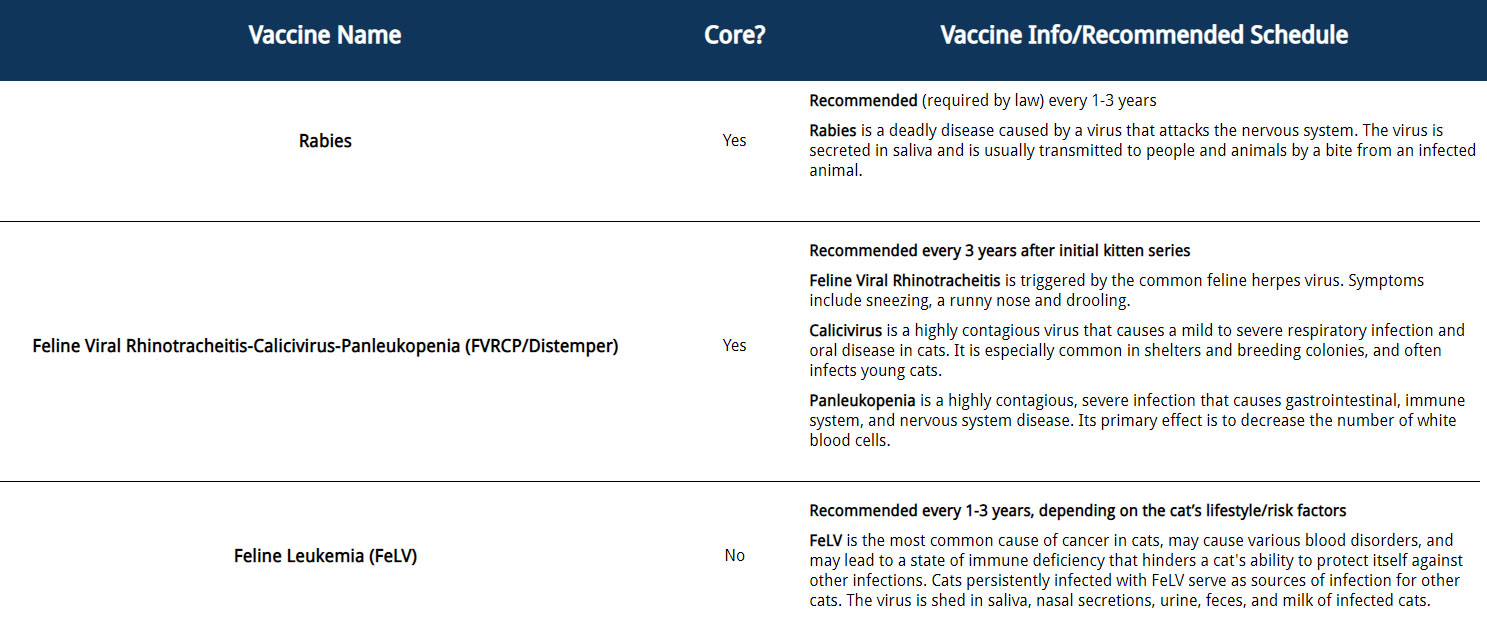Preventative Care

Wellness Exams
As stated by the AVMA, veterinarians recommend regular wellness exams for
the same reason your physician and dentist recommend them – if you can
detect a problem in its early stages, it’s more likely to be treated and
resolved with less expense, less difficulty and better success.
As the saying goes, an ounce of prevention is worth a pound of cure.
Vaccinations, heartworm prevention and routine internal parasite screening
are important components of wellness care and can prevent diseases that
could not only be life-threatening, but also very expensive to treat.
We base our wellness recommendations off of the information and guidelines
issued by the AVMA, AAHA, and AAFP.
Canine Vaccines
Feline Vaccines
Wellness Bloodwork
Wellness blood work is designed to detect early or hidden disease in pets
that appear to be healthy. In older pets, it is also used to monitor stable,
but ongoing health problems.
At Avondale Animal Hospital we recommend wellness blood work on an annual
basis. Many pet owners combine wellness testing with their pet’s annual
visit to the veterinarian for physical examination, vaccination, and
heartworm/fecal testing.
There are four main categories of wellness blood work for dogs and cats:
complete blood count (CBC), biochemistry profile, urinalysis, and thyroid
hormone testing.
Heartworm, Flea, and Intestinal Parasite Prevention and Control
Heartworm (Dirofilaria immitis) is a fairly large worm – up to 14 inches
long – that, in adulthood, lives in the heart and pulmonary arteries of
infected dogs (and sometimes cats). Numerous worms can infect a dog or cat
at once. Pets acquire this infection through mosquito bites as mosquitoes
readily drink larval heartworms from infected pets, nurture their
development, and ultimately carry them to new pets. North Florida is one of
many geographic areas that have severe heartworm problems
compared to other parts of the country. Heartworm disease can cause sudden
death in infected pets, or can cause chronic changes in the heart and lungs
that ultimately shortens the pet’s life expectancy over time. Thankfully,
heartworms are highly preventable.
Avondale Animal Hospital carries several heartworm prevention products,
including ProHeart6 (an injectable canine heartworm prevention that works
for 6 months). Our doctor and staff would be happy to discuss heartworm
testing recommendations as well as the various options for heartworm
prevention products at your pet’s next wellness visit.
North Florida is also home to a particularly high burden of fleas and ticks.
The Avondale Animal Hospital team can help formulate a plan to eradicate
fleas from your pets and your environment.
Intestinal parasites (hookworms, roundworms, whipworms, tapeworms, coccidia,
giardia, etc) are also very common in our area. Fecal exams are recommended
every 6 months to screen for parasites and deworm accordingly.
Puppy/Kitten Exams
Very young animals are highly susceptible to infectious disease because
their immune system is not yet fully mature. They receive protection through
antibodies in their mother’s milk, but the protection is not long-lasting
and there may be gaps in protection as the milk antibodies decrease and
their immune system is still maturing. In many instances, the first dose of
a vaccine serves to prime the animal’s immune system against the virus or
bacteria while subsequent doses help further stimulate the immune system to
produce the important antibodies needed for long-term protection.
An incomplete series of vaccinations may lead to incomplete protection,
making puppies and kittens vulnerable to infection.
To provide optimal protection against disease in the first few months of
life, a series of vaccinations are scheduled, usually 3-4 weeks apart. For
most puppies and kittens, the final vaccination in the series is
administered at about 4 months of age
Senior Wellness
Age is not a disease; however, older pets are at a higher risk for
developing many diseases. Cats are classified as “senior” at 11-14, and
“geriatric” at 15+ years. Dogs vary based on breed and size. Giant breeds
(Great Danes, St Bernards, Newfoundlands etc.) can be considered senior as
young as 6, whereas small breed dogs approach their senior years closer to
10.
Annual to biannual blood work is strongly recommended for senior
pets.
Microchipping
Microchips help owners reunite with their pets should they ever escape or
become lost.
A microchip is a small, electronic chip enclosed in a glass cylinder that is
about the same size as a grain of rice. The microchip is typically implanted
in the skin between the shoulder blades.
The microchip itself does not have a battery—it is detected by a scanner
that is passed over the area in which it is implanted. The chip transmits
the identification number to the scanner, which displays the pet’s unique ID
number on the screen.
If a lost pet is found and brought to a shelter or veterinary clinic, the
pet is immediately scanned for a microchip number. This number can be
entered into a pet microchip lookup database. As long as the owner has
registered their contact information to their pet’s identification number,
the owner can be contacted to be reunited with their pet.
The microchips presently used in pets only contain identification numbers.
Microchips are not GPS devices and cannot track your animal if it gets lost.
Microchips are implanted under the skin using a hypodermic needle. It is no
more painful than a typical injection, although the needle is slightly
larger than those used for injection. No surgery or anesthesia is required—a
microchip can be implanted during a routine veterinary office visit. If your
pet is already under anesthesia for a procedure, such as neutering or
spaying, the microchip can often be implanted while they’re still under
anesthesia.


